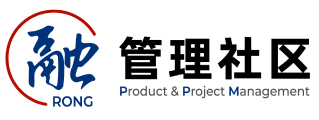关于Scrum Mastering ... 9件事可以尝试
 772 2023-08-17
772 2023-08-17
我们非常重视原创文章,为尊重知识产权并避免潜在的版权问题,我们在此提供文章的摘要供您初步了解。如果您想要查阅更为详尽的内容,访问作者的公众号页面获取完整文章。
Summary of Ewan O'Leary's Article on Scrum Master Role Guidance
Introduction: Ewan O'Leary, an organizational and leadership coach, shares insights on how individuals in the role of Scrum Master can guide and encourage their teams towards self-organization. His suggestions are not prescriptive but rather experimental ideas that Scrum Masters can try out.
Building Team Confidence: O'Leary acknowledges that team members may not believe in their abilities as much as their Scrum Master does. He recommends introducing experiments that communicate the Scrum Master's role in fostering team participation, which can help break deadlocks and boost the team's confidence to conduct their own experiments.
Empowering Teams: Scrum Masters should aim to make themselves dispensable during daily stand-ups, giving teams the space to interact without feeling they have to perform for the Scrum Master. This empowers the team to take responsibility for their communication and meeting outcomes. An additional tip is to offer coffee or snacks to facilitate a comfortable atmosphere.
Value over Tasks: It's important for teams to focus on delivering value, such as completing user stories, rather than just finishing tasks. Shifting the conversation to value delivery can significantly change the team's ability to complete user stories.
Encouraging Team Thinking: Scrum Masters should avoid thinking on behalf of the team as it diminishes the team's own thinking capability. The job of a Scrum Master is to cultivate the team's ability to solve problems, especially in organizations with a strong command culture. For those with project management backgrounds, this may be a challenging shift.
Doing Less: By consciously doing less, Scrum Masters compel the team to do more. Overzealous Scrum Masters may inadvertently become administrative assistants rather than process facilitators, which can disengage team members, particularly remote ones. Letting the team know that the Scrum Master will be less involved in daily stand-ups encourages them to take more initiative.
Reducing Specialization: Scrum Masters should address skill gaps by creating a list of skills needed to complete tasks and use it as input for team learning. This reduces reliance on specific individuals within the team.
Facilitating Communication: Scrum Masters should not be the center of conversations but should support them from the sidelines. Visualization of communication flow with a whiteboard can show the team that direct interactions among team members are more effective than routing everything through the Scrum Master.
Enabling Team Autonomy: Too much coordination and risk mitigation by the Scrum Master can prevent the team from realizing that these are their responsibilities. Setting time-boxed discussions and posing challenges can help teams develop their own problem-solving strategies.
Team Intelligence: Overall, teams are often smarter than the Scrum Master. The Scrum Master's role is to harness their collective intelligence towards common goals, fostering a culture of enthusiasm for growth and technical proficiency.
Conclusion: O'Leary emphasizes the importance of curiosity, openness, compassion, and patience on the journey of implementing these suggestions. He invites Scrum Masters to embrace the journey with a positive and empathetic mindset towards themselves and their teams.
About the Author: Ewan O'Leary is a coach, facilitator, and trainer with Future State, based in San Francisco, CA. He has worked with various clients and holds certifications in Agile methodologies. He is also the creator of TealWoWSM and contributes to the Agile community through blogging and writing.
想要了解更多内容?


白皮书上线








